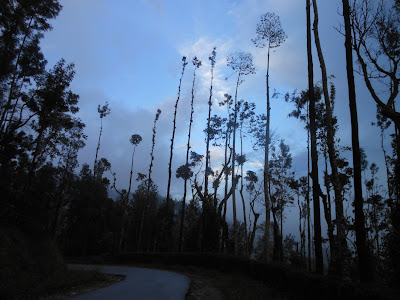This is so completely my vision of happiness. This is what I live for. A real incident, from one of Naomi Shihab Nye's memoirs. Her father is Palestinian, her mother American.
"This is the world I want to live in.
The shared world.
Not everything is lost."
Wandering Around an Albuquerque Airport Terminal
After learning my flight was detained 4 hours,
I heard the announcement:
If anyone in the vicinity of gate 4-A understands any Arabic,
Please come to the gate immediately.
Well — one pauses these days. Gate 4-A was my own gate. I went there.
An older woman in full traditional Palestinian dress,
Just like my grandma wore, was crumpled to the floor, wailing loudly.
Help, said the flight service person. Talk to her. What is her
Problem? we told her the flight was going to be four hours late and she
Did this.
I put my arm around her and spoke to her haltingly.
Shu dow-a, shu- biduck habibti, stani stani schway, min fadlick,
Sho bit se-wee?
The minute she heard any words she knew — however poorly used -
She stopped crying.
She thought our flight had been canceled entirely.
She needed to be in El Paso for some major medical treatment the
Following day. I said no, no, we’re fine, you’ll get there, just late,
Who is picking you up? Let’s call him and tell him.
We called her son and I spoke with him in English.
I told him I would stay with his mother till we got on the plane and
Would ride next to her — southwest.
She talked to him. Then we called her other sons just for the fun of it.
Then we called my dad and he and she spoke for a while in Arabic and
Found out of course they had ten shared friends.
Then I thought just for the heck of it why not call some Palestinian
Poets I know and let them chat with her. This all took up about 2 hours.
She was laughing a lot by then. Telling about her life. Answering
Questions.
She had pulled a sack of homemade mamool cookies — little powdered
Sugar crumbly mounds stuffed with dates and nuts — out of her bag —
And was offering them to all the women at the gate.
To my amazement, not a single woman declined one. It was like a
Sacrament. The traveler from Argentina, the traveler from California,
The lovely woman from Laredo — we were all covered with the same
Powdered sugar. And smiling. There are no better cookies.
And then the airline broke out the free beverages from huge coolers —
Non-alcoholic — and the two little girls for our flight, one African
American, one Mexican American — ran around serving us all apple juice
And lemonade and they were covered with powdered sugar too.
And I noticed my new best friend — by now we were holding hands —
Had a potted plant poking out of her bag, some medicinal thing,
With green furry leaves. Such an old country traveling tradition. Always
Carry a plant. Always stay rooted to somewhere.
And I looked around that gate of late and weary ones and thought,
This is the world I want to live in. The shared world.
Not a single person in this gate — once the crying of confusion stopped
— has seemed apprehensive about any other person.
They took the cookies. I wanted to hug all those other women too.
This can still happen anywhere.
Not everything is lost.
Naomi Shihab Nye




